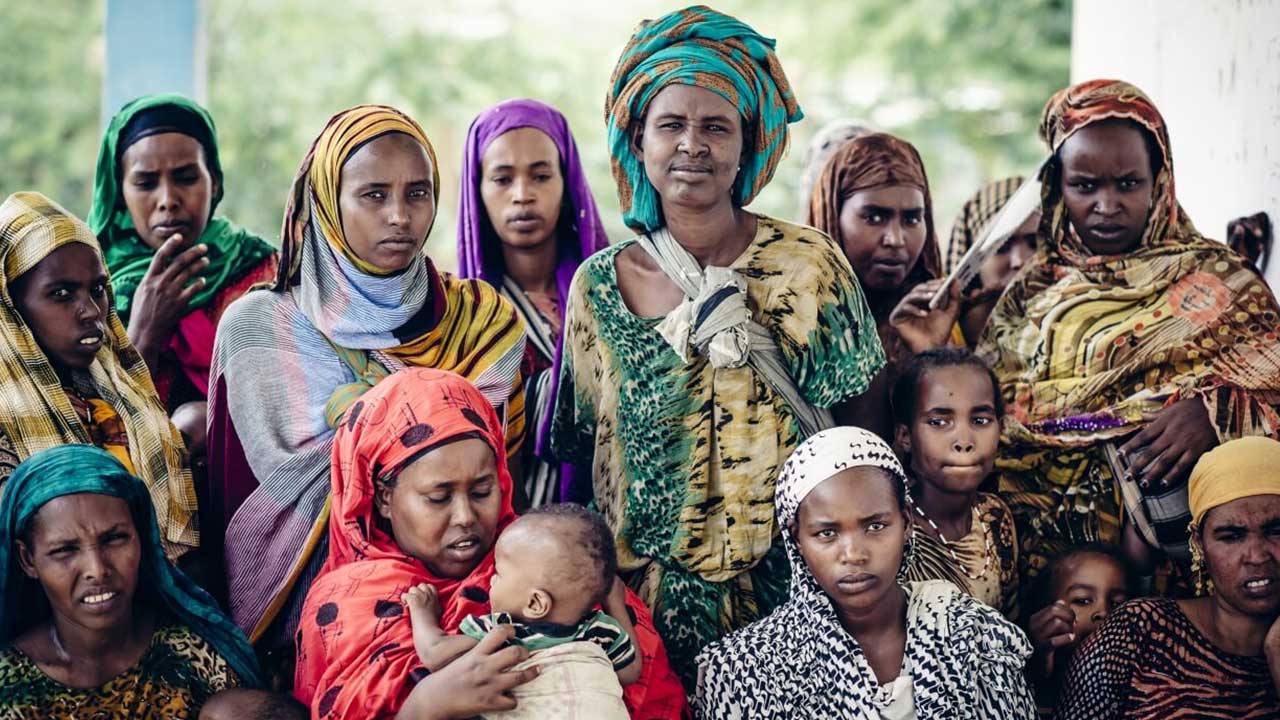AU Strategy for Gender Equality and Women’s Empowerment
AU Strategy for Gender Equality and Women’s Empowerment

A summary
The African Union strategy on Gender Equality and Women’s Empowerment (GEWE) 2018-2028 which was launched during the AU Summit February 2019 is based on an inclusive and multisectoral approach and builds on the lessons learned from the 2009 gender policy. It is transformational in that its outcomes aim to mitigate, if not eliminate the major constraints hindering gender equality and women’s empowerment, so that women and girls may participate fully in economic activities, political affairs and social endeavours.
The GEWE Strategy is a framework document to strengthen women’s agency in Africa and ensure that women’s voices are amplified and their concerns are fully addressed through, among others, effective implementation of legislation and proper financing of gender equality work. It is a guiding document on the implementation of the AU’s GEWE commitments and is to be used to design transformational programmes that bring results for African women and girls on the continent and in the diaspora.
If we don’t put women in history books, they get edited out of history.
The strategy has four pillars and each pillar outlines outcomes and proposed activities that should be implemented in furtherance of that specific pillar.
- Pillar 1 focuses on maximising opportunities, outcomes and e-tech dividends. It recognises, amongst others, that for women to be economically empowered, and to be able to effectively contribute to sustainable development, they must have access to quality education and control over productive resources. The GEWE strategy proposes to mount a continental campaign to declare “illiteracy a harmful traditional practice and make “out of school” a punishable offence; and to advocate for and lobby e-Tech firms and financial institutions to fund start-ups and innovation hubs which promote gendered solutions and increase women and girls’ equal and effective participation in the technology space.
- Pillar 2 focuses on dignity, security, and resilience and recognises that the rights of women and girls to dignity, security and bodily and psychological integrity are often compromised when women are subjected to violence and violations, which often times happen in the context of violence against women and harmful traditional practices such as early-child marriage and female genital mutilation. The GEWE Strategy proposes to implement AU guidelines on Ending Violence against Women and Girls (VAWG) and fund national projects to penalise VAWG.
- Pillar 3 highlights the need for effective laws, policies and institutions. Whereas Africa has made progress in progressive laws and policies and institutions to promote and protect women’s rights, there is still a huge deficit when it comes to effective implementation and gender machineries remain among the weakest public institutions at a time when they are needed the most to push the gender agenda forward. The GEWE Strategy proposes to design and implement a new initiative called “All for Maputo Protocol Programme”, which will support the full and universal ratification, domestication and implementation of the Maputo Protocol.
- Pillar 4 focuses on leadership, voice and visibility. This pillar recognises that for women to have a voice, they need to be equally represented in all areas of decision-making and be able to participate with impact, through the removal of all forms of barriers. The strategy proposes to integrate gender in the rewriting of the African narrative. The former AUC Chairperson, H.E Dr. Nkosazana Dlamini-Zuma, once said, “If we don’t put women in history books, they get edited out of history”. WGDD has also prioritised knowledge development and management and will be publishing a number of products: among others, A State of Women’s Rights report in Africa, A Historic African women’s booklet documenting the stories of the African women who gallantly fought in African liberation struggles.
To bring this strategy to life, WGDD initiated the development of three key documents: i.e. the Operational Plan, the Results Framework and the Harmonization Matrix. These documents aim at consolidating and capitalizing the orientation of the GEWE strategy, strengthening its operationalisation and implementation modalities, while taking into account the specific contexts and priorities of Member States and Regional Economic Communities (RECs). The documents were validated at a workshop held in June and will be presented at the upcoming Specialized Technical Committee on Gender Equality and Women’s Empowerment in October, where African Union Ministers in charge of gender and women’s Affairs will consider and adopt the documents.
For More Information











